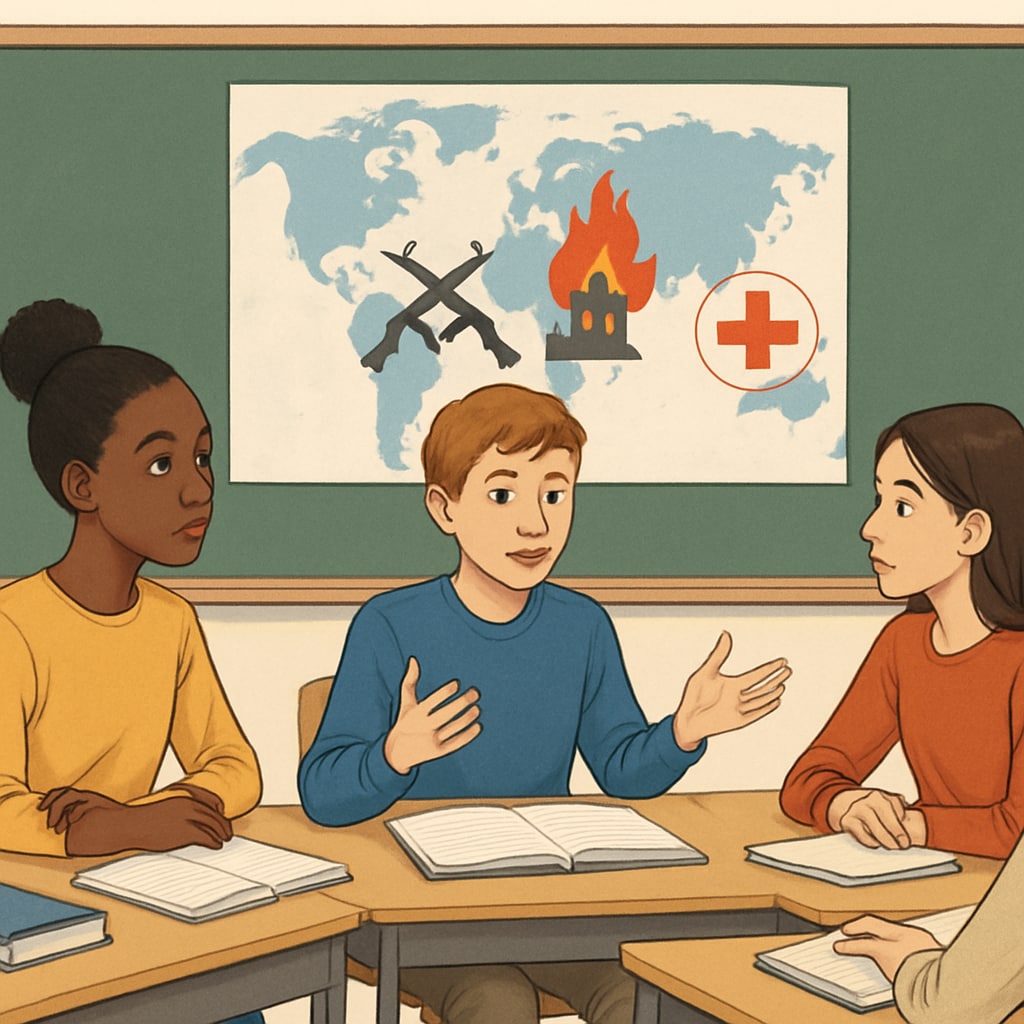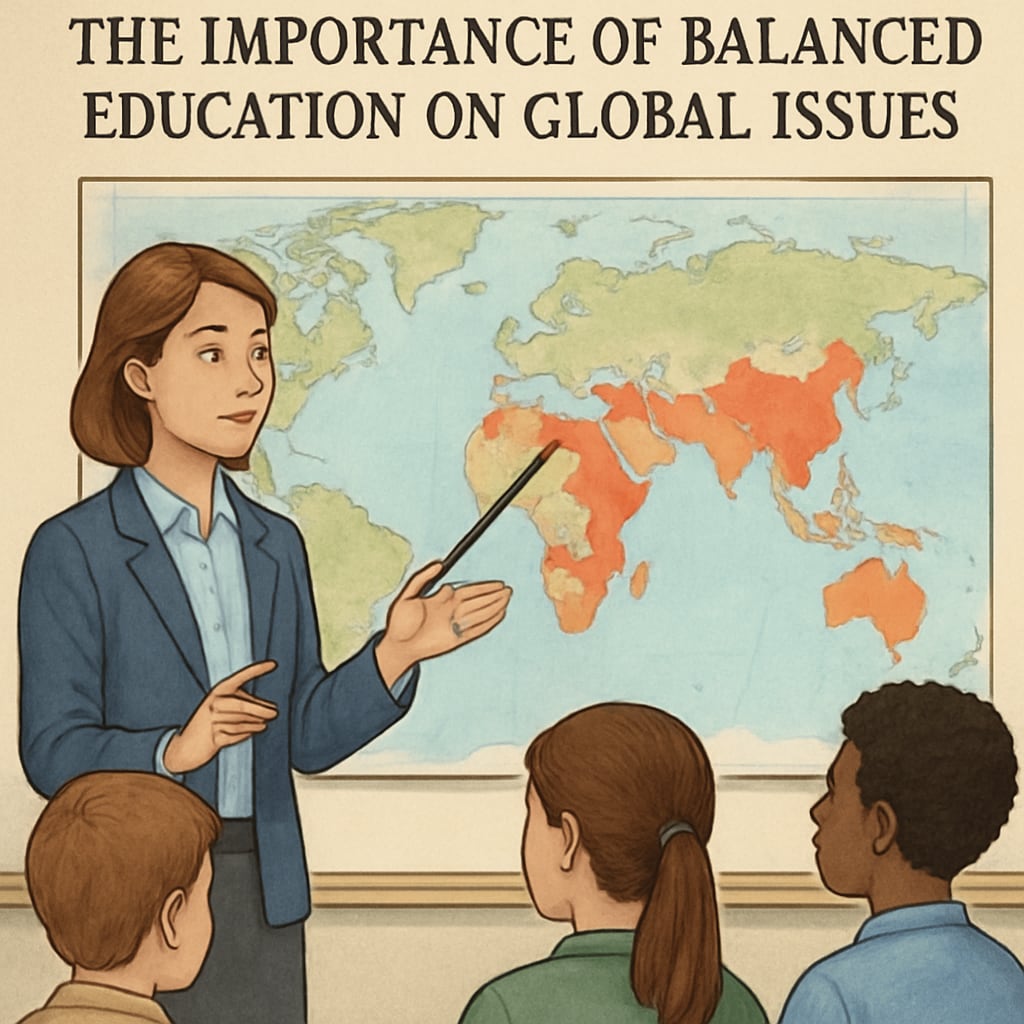When a school proposed observing a moment of silence specifically for Gaza, the initiative sparked heated debate. The decision to generalize this act to honor victims of all global conflicts raised questions about educational institutions’ role in addressing humanitarian crises. This “broadening” or “generalization process” reflects a deeper dilemma: how do schools balance the immediacy of specific tragedies like Gaza with the universal responsibility to educate about global injustices, including topics like genocide?

Local Tragedies vs. Global Perspectives: The Educational Dilemma
Gaza has long been a flashpoint for global attention, with its humanitarian crises often drawing calls for solidarity. By proposing a moment of silence, schools can encourage students to reflect on the ongoing suffering in the region. However, the decision to generalize this act to include all victims of global conflicts risks diluting the immediacy of the Gaza crisis. Critics argue this approach may unintentionally overshadow the specificity of certain tragedies, such as those categorized as acts of genocide, while supporters contend it promotes inclusivity.
For example, a Gaza-specific moment of silence highlights the immediate humanitarian violations occurring in that region. Shifting the focus to all global war victims, however, could risk diminishing the urgency needed to address specific atrocities. The question, then, is whether educational institutions are avoiding controversy by opting for generality or genuinely encouraging a broader understanding of human suffering.
What Does Ethical Education Entail?
Ethical education involves guiding students to critically engage with real-world issues. Avoiding controversial topics may seem like a neutral stance, yet it risks sidelining critical conversations about specific instances of injustice. In the case of Gaza, the crisis is not just a regional issue but a symbol of larger systemic problems such as displacement, poverty, and violence. Addressing these topics specifically allows students to understand the complexities of geopolitical conflicts.
Moreover, generalizing educational initiatives, such as moments of silence, can lead to what some critics call “conflict fatigue,” where the focus on specific issues becomes lost in a sea of generalized concerns. To counteract this, schools must strike a balance between global awareness and specificity, ensuring that students are neither overwhelmed nor disengaged.

How to Approach Humanitarian Crises in the Classroom
Schools have the responsibility to foster critical thinking and empathy. Here are some approaches educators can consider:
- Contextual Education: Provide students with the historical and geopolitical context of specific crises like Gaza, helping them understand why these events matter.
- Balanced Perspectives: While addressing specific tragedies, incorporate discussions about broader systemic issues, such as the causes of war and genocide.
- Encourage Student Voice: Allow students to engage in dialogue about these topics, fostering a sense of agency and critical inquiry.
- Utilize Resources: Leverage expert sources, such as Gaza Strip on Wikipedia and Gaza Strip on Britannica, to provide accurate and unbiased information.
By adopting these methods, schools can create a space where students not only reflect on global suffering but also understand the importance of addressing specific injustices.
The Way Forward: Courage and Responsibility in Education
Ultimately, the decision to generalize or specify moments of silence in schools is emblematic of a broader challenge: how to educate responsibly in a politically charged world. Avoiding specificity may seem like the safer route, but it risks undermining the depth and urgency of humanitarian education. On the other hand, focusing on specific crises like Gaza requires courage, as it often invites criticism and controversy.
Educational institutions must prioritize truth and empathy, equipping students with the tools to critically analyze and respond to global injustices. Whether addressing the ongoing crisis in Gaza or the broader implications of war and conflict, schools have the responsibility to foster informed, compassionate global citizens.
Readability guidance: Short paragraphs, clear transitions, and a mix of lists and narrative ensure the article remains engaging. Overuse of passive voice is avoided, and each section builds logically on the last.


